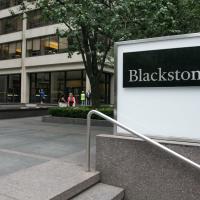Private equity acquisitions surged in Japan last year, driven by long running structural trends. After a two-decade wait, a small group of US buyout firms are preparing for the next wave of domestic corporate carve-outs
This article first appeared in the February 2023 Asia Insights Report
Private equity acquisitions surged in Japan last year, driven by long running structural trends. After a two-decade wait, a small group of US buyout firms are preparing for the next wave of domestic corporate carve-outs
For an outsider looking in, Japan might seem the perfect private equity market. A weak yen, cheaper debt financing and steady government have created a happy hunting ground and the best ‘not-China’ option for many pan-Asian buyout funds. Two trends and one caveat make it unique
Despite an early suspicion of foreign corporate raiders, governance reform has unlocked carve-out acquisitions among Japan’s largest conglomerates and an aging society has opened a succession gap at around half of all Japanese companies. Two decades after the first US buyout funds arrived in Tokyo, perceptions have changed and they believe the golden age for private equity may be finally here. “It may take Japan longer to get on a trend,” says Robert Petty, co-CEO and co-CIO at Fiera Capital (Asia), “but once it’s on it, it’s on it. And for private equity funds looking at Asia, there’s a greater acceptance that the capital markets that go with capitalism will be there in Japan”, in reference to both regulation and Japan’s active IPO market.
Patient capital
As other Asian markets softened last year, private equity activity continued to grow in Japan. Total deal value exceeded US$25bn, making 2022 the second highest year since 2012, according to Dealogic data. Between 2008 and 2018, the net median IRR for Japan buyout fund also outperformed North America, according to Preqin. “Unlike other countries, Japan’s private equity market remains hot,” wrote Bain & Company in an M&A Report on the country in January. “Funds created for investing in Japan are growing, and many Asia funds are shifting focus from China to Japan. So, the amount of dry powder to be invested in the country will remain substantial,” adding that interest rates are comparatively low in Japan, making it affordable to borrow for deals. The report also noted that enterprise value multiples of public companies in Japan remain substantially lower than in the US, partly because of their lack of a well-defined growth strategy.
KKR’s US$6bn carve-out of Hitachi’s logistics arm was Japan’s largest M&A transaction of 2022 and followed a successful bid by Bain Capital for Hitachi’s metal unit announced in 2021. Both buyout groups have said they are stepping up their activity in Japan, but these transactions are worth examining in context. Mega buyouts are still rare in Japan and tend to be limited to a small pool of managers that have been active there the longest.
While Japan saw a record 3,380 M&A transactions last year, only 96 were private equity-backed, according to Dealogic. For US buyouts, only four crossed the US$1bn mark in 2022 and all were completed by either KKR or Bain Capital, according to S&P Global Market Intelligence. Bain Capital bought microscope business unit Evident from Olympus and a majority stake in clothing maker MASH Holdings; while KKR acquired a real estate business from Mitsubishi Corp and UBS Realty in addition to the Hitachi logistics carve-out.
Tokyo’s newcomers
International and pan-Asian managers recognize the opportunity set in Japan, says Jeff Pentland, head of Asia-Pacific at Northleaf Capital, which opened a Tokyo office at the end of last year. But these managers (and their lenders) are not without caution and recognize the need for patience, he adds.
“Successful deals in the Japanese market take time, and there is a lot of work and relationship building that needs to happen to bring a deal to fruition,” he says. “Deal financing can also be complex and tailored to each opportunity… The most successful managers are likely to be those who understand and are sensitive to the nuances and subtleties of doing business in Japan.”
The advice hasn’t been lost on others. Bahrain’s Investcorp, which in February announced its plans to open a Tokyo office, has recruited former financial services minister Heizo Takenaka to chair its Japan operations. Foreign funds will have to face down Japan’s own investment firms, particularly where takeovers are deemed more politically sensitive. Arguably one of the most high-profile buyouts in the country – the US$15bn sale of Toshiba – attracted interest from many of the world’s largest private equity firms including Bain Capital and CVC, but preferred bidder status eventually went to an all-Japanese group in October 2022.
The next wave
Given that Japan’s succession gap cuts across all parts of the economy, buyout funds must be sector-agnostic and opportunistic, says Kazuhiro Yamada, head of Carlyle in Japan. “Historically, ownership would move to a competitor but now there is another option for them in private equity, which can keep them independent,” he says. “You still need deep knowledge about the industry, to demonstrate value and how you can grow the company.”
Globally Carlyle has six industry teams – in Japan there is a focus on three: technology, media and telecoms; general industry and manufacturing; and consumer, healthcare and retail. US buyout funds are looking for the next wave of carve-outs among Japan’s manufacturers and electronics makers and in its industrial and energy sectors, where chemical and oil companies are reviewing their operations through an ESG lens. As electric vehicle production ramps up globally, Japan’s automotive companies are also reviewing growth plans tied to combustion-engine cars, creating potential investment opportunities for private equity.
“The first wave of carve-outs mainly focused on independently operating entities within a group, like listed subsidiaries,” Takanobu Hara, a Tokyo-based partner at BPEA EQT said in an interview with Reuters last year. “Now we are seeing an increasing number of ‘real’ carve-outs, in a sense that conglomerates are carving out business divisions from within.”
In 2007, as the global financial crisis unraveled, Japanese TV broadcast a mini-series about a US investor that takes advantage of struggling firms entitled ‘Vulture’. Carve-outs at Japan’s household names Toshiba, Panasonic and Hitachi have helped to change this perception but set-backs – like when KKR’s Nissan carve-out ended in a court-led restructuring last year – may not be completely unavoidable.






